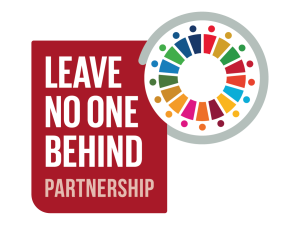We are a decade away from the deadline for the Sustainable Development Goals, yet when they were set in 2015, very few people would have anticipated a global pandemic affecting almost every country and territory across the world in 2020. The predictions are dire, from the projected number of people who will die from the virus, to the impact on food security, livelihoods and markets, to the effect on the social fabric of many communities.
However, among the crisis and chaos, there is also a real opportunity to rebuild better following the pandemic, in a way that leaves vulnerable people and communities significantly better off than they were before.
Business Fights Poverty has conducted extensive collaboration with businesses, organizations and individuals, and held online events in July and during the UN’s high-level week in September. Through these discussions we have identified five primary ways that businesses can help with the global effort to rebuild better.
1. Demonstrate a purpose beyond profit
There will be increasing demand from employees, customers, investors, and other stakeholders for companies to more actively articulate and demonstrate their wider societal purpose beyond profits (recognizing that firms with purpose also do better financially). Such purpose should include tackling inequality, protecting human rights, supporting climate action and acknowledging their carbon footprint, and being better at, and more transparent about, measuring impact. Practical measures could include a company’s board of directors issuing a “Statement of Purpose” committing to bringing a positive return for their communities and stakeholders, not just shareholders.
2. Support the most vulnerable people and communities within value chains
The pandemic has exposed and exacerbated existing fragilities in global value chains. Such fragilities include micro, small, and medium enterprises without the cash reserves to endure the economic impact of lockdowns, and hourly workers without access to sick pay or social protection. We have produced an action toolkit, which is free to download from our website, looking at vulnerable workers whose health is at risk due to exposure to the virus, and those whose livelihoods are at risk because they depend on export sectors that have ground to a halt. Articles on tackling hidden labor and a video on enhancing social justice in global supply chains offer additional insight.
3. Invest in building new skills and personal resilience
COVID-19 has been hugely disruptive to the world of work and learning, accelerating trends towards automation and new technology. There is an urgent need for upskilling and reskilling workers – not only with technical skills, but also with the soft skills that are increasingly demanded by employers.
As “Building Back Better” becomes the prevailing theme for rebounding from the pandemic, decent jobs must be top priority. With support from The Lab at the International Labour Organization (ILO), Business Fights Poverty has created the Better Jobs Action Toolkit to provide guidance to businesses and organizations on ensuring that recovery efforts prioritize decent work.
We have also launched an innovative partnership with life sciences company Bayer, to explore how a wider uptake of “self-care” approaches can reduce pressure on health services, improve health incomes, and empower individuals and communities. Learn more through this online discussion.
4. Prioritize action on equity
The pandemic has affected people differently, based on their gender, race and income level. Women have been more exposed to infection as they make up the majority of front-line health workers. Women also are often in the most vulnerable positions in workforces and value chains, they have faced a surge in domestic violence, and they taken on the burden of unpaid care. At the same time, the murders of George Floyd, Breonna Taylor, and Ahmaud Arbery in the U.S. and the resulting protests have exposed deep-rooted, systemic racism and an urgent need for action.
Natalie Deacon of Avon writes that flexible, digital earning opportunities can support women’s well-being and avoid the rolling back of gender gains. On 3 December 2020, Business Fights Poverty will host a one-day online learning and collaborative event on gender equity in pandemic responses. Uwe Gneiting from Oxfam America also shares thoughts on how businesses can tackle inequalities that have been exacerbated by COVID-19.
5. Build system-level partnerships
COVID-19 has highlighted how truly interconnected we all are as well as the large-scale challenges we face, such as inequity and climate change. So, we need to rethink how we partner – shifting from traditional, transactional-style partnerships to ones that bring together multiple partners from across a company’s value chain, among peer groups, with government and civil society. With Seth Green, founding director of the Baumhart Center, an interdisciplinary center at Loyola University Chicago that prepares leaders to tackle society’s most pressing challenges, we created a “How To” video for companies on how to partner for transformational change.
The global pandemic is far from over and the consequences will be felt for many years to come. Business Fights Poverty will continue to play a key role in helping businesses to respond to threats, build trust, and connect partners for purposeful collaboration. It’s crucial that we leverage the learnings and changes brought on by COVID-19 to forge ahead into the Decade of Action to improve millions of lives by 2030.
This article will be cross-posted at the global SDG Knowledge Hub of IISD as part of a series of publications from the Leave No One Behind partnership.








